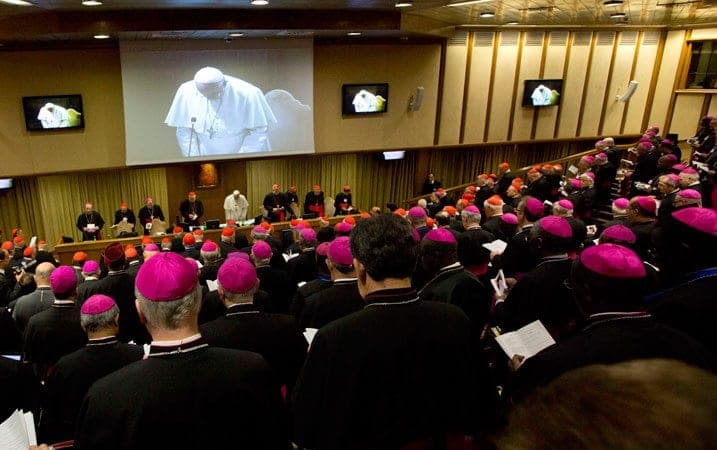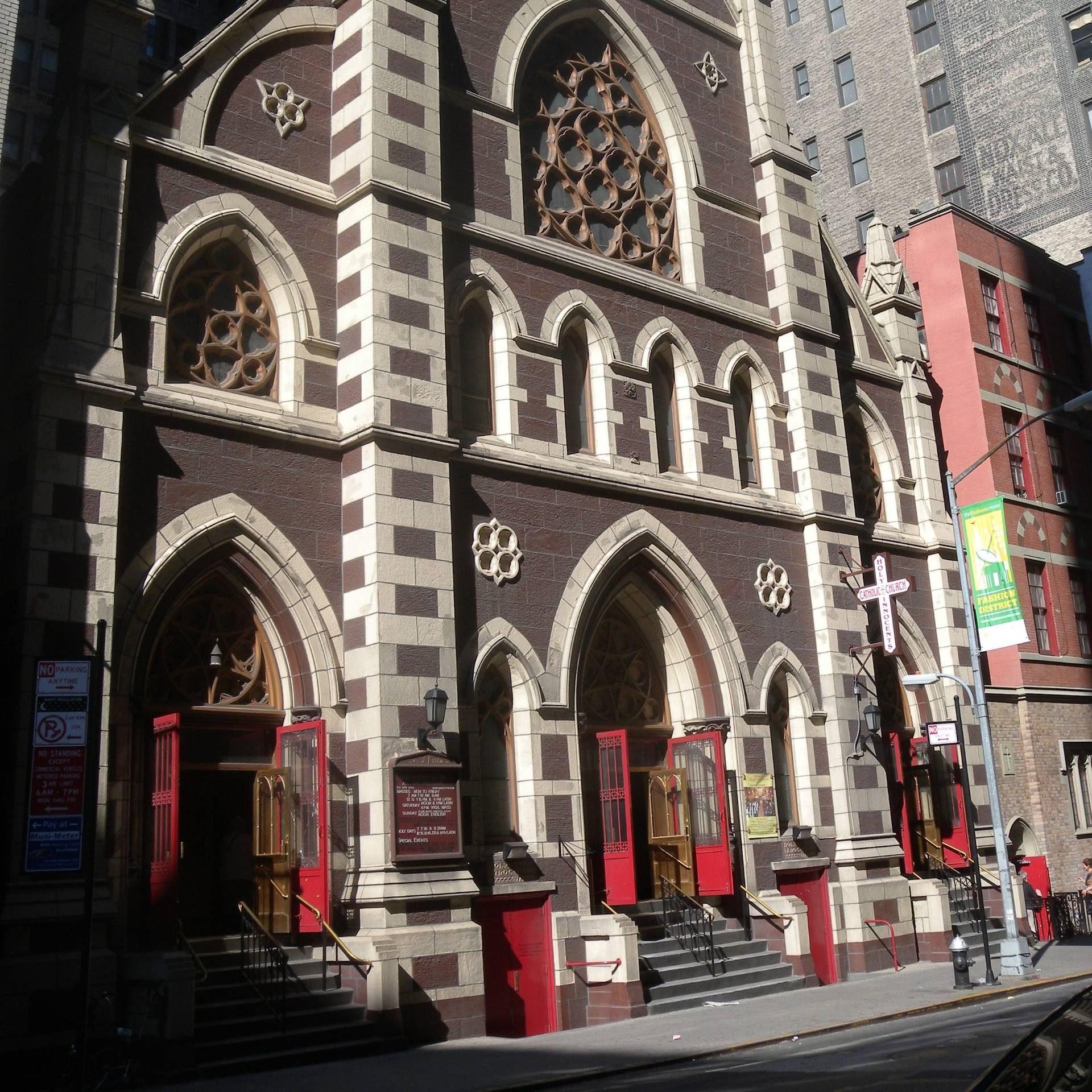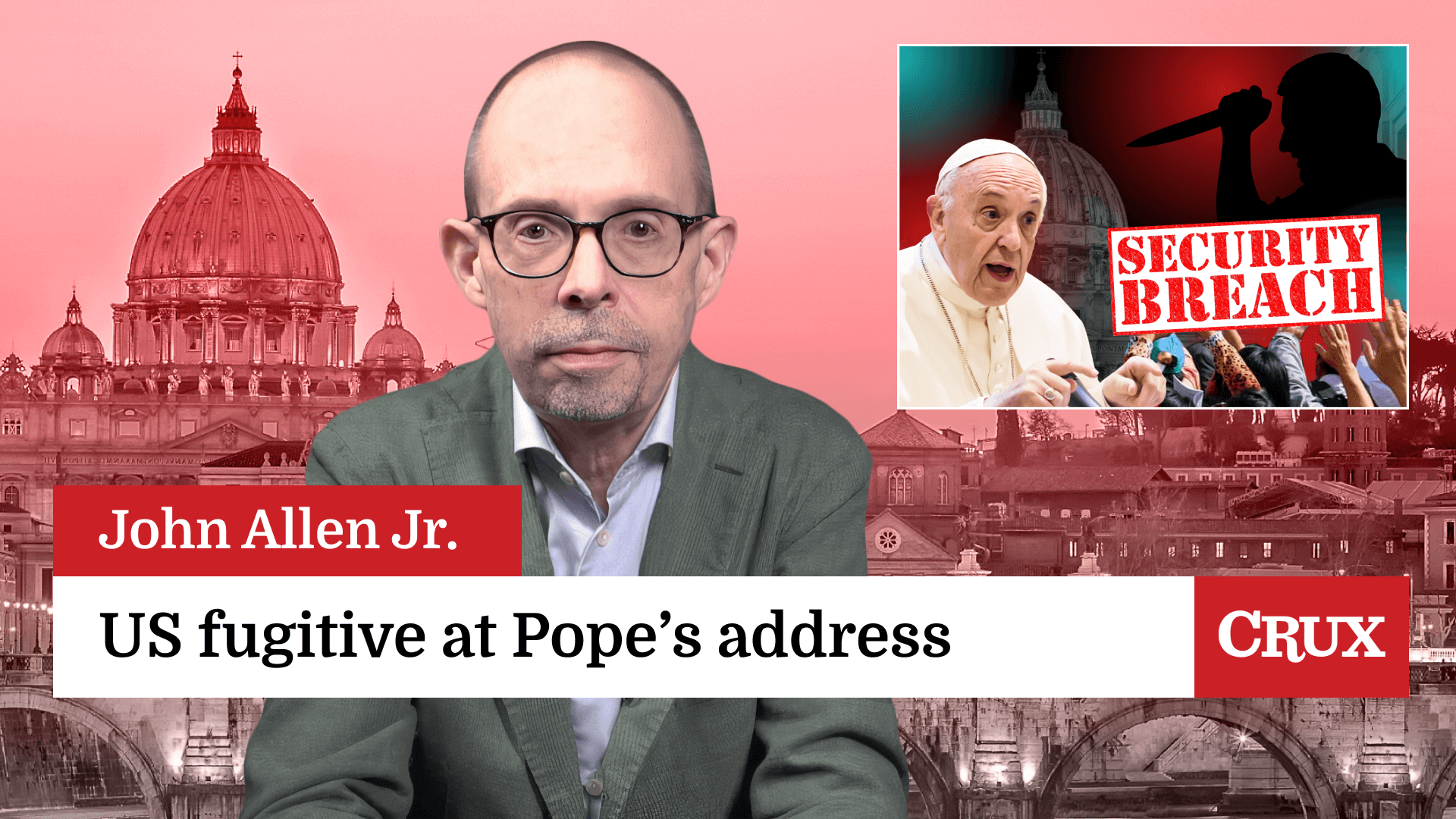After the bruising but fruitful experience of the synod on the family, one thing is clear: Francis has created an instrument of discernment that is capable of wrestling with big issues in the contemporary Church.
The reformed synod – a global consultation, followed by two assemblies separated by a year, concluding in a major papal teaching document that resets pastoral strategy for the next generation – means that big topics can no longer be kicked into the long grass on the basis that they are just too big to deal with.
If a vast topic such as the Church’s preparation for marriage and its handling of divorcés can be discussed, it means other burning issues can be too. And top of that list are questions about ministry: access to the sacraments, the role of women and lay people, as well as the role of deacons.
Some are saying that pastoral ministries will the topic for the next synod, likely to be scheduled for 2018-19.
No one doubts the question is an urgent one. More than half of the Catholic Church’s communities worldwide have no resident priest.
The diocese of Xingú in the Brazilian region of Pará, for example, has 800 parishes or missions in a territory the size of Germany, but just 27 priests, meaning that more than two-thirds of the faithful take part in Sunday Mass just two or three times a year.
Xingú may be extreme, but across the developing world, in both rural areas and the cities, priest-to-people ratios are far lower than in the wealthy north, in part because distances are vast and congregations are growing faster than priests can be trained.
But there are also dramatic examples in Europe, where catechists or lay people in effect run the parishes in between rare visits by the parish priest.
Back in May 2007, when the Latin-American bishops met for their great pan-continental assembly at the shrine of Aparecida, Brazil, a considerable number of them wanted to discuss the painful question of the lack of access to the sacraments.
But a Vatican representative assured them that it was neither the time nor the place to open that discussion without the say-so from Rome.
The then-Cardinal Archbishop of Buenos Aires, the chief author of Aparecida’s concluding document, was well aware of the desire for that discussion, just as, at the synod on the Eucharist in Rome two years earlier, he had seen how keen bishops were to discuss the access to the sacraments of the divorced and remarried.
Those bishops had been told at the time that the synod as it was constituted was not the place for that discussion and Bergoglio agreed – which is why, after his election, Francis introduced a new format that could enable such a discernment.
In much the way that access to the sacraments of the civilly divorced and remarried was the neuralgic question in the family synod — the issue around which disagreements coalesced – in a future synod on the ministries it will be the priestless parish.
And just as there was a longstanding, controversial proposal in response to the divorced and remarried issue – Cardinal Walter Kasper’s invitation to consider the Orthodox approach – there is one for priestless parishes.
A solution has been kicked around the yard for many years by Fritz Lobinger, a retired German bishop who lives in Durban, South Africa.
During 50 years in South Africa, and traveling to many parts of the world, he observed how many Christian communities in remote areas are led in practice by small groups of committed, mature lay people.
His solution is to ordain them after a brief training, so that they can administer the sacraments within that community alone.
These “locally ordained ministers” — Lobinger says it is important not to call them priests, even though it would involve precisely the same sacrament of priestly ordination — would be, in effect, a parallel priesthood, complementary to the existing norm in the Latin rite of a celibate, seminary-trained priest sent by his bishop to different parishes or missions.
Lobinger points to a precedent in Acts of the Apostles 14:23 when St Paul and Barnabas appointed — or ordained — “elders” in the young Christian communities, the term referring not so much to the age of the people but their maturity or fitness for the task.
These were teams of men who were not sent to their community but came out of it; who ministered to the community part-time, while continuing to work at their professions; and who had families.
This shows, says Lobinger in a book published recently in Spanish, that the Church for a number of centuries ordained local leaders chosen by the local community, who had proven their worthiness over some time.
Francis has given many signals of his willingness to open up the question of ordaining married men, even encouraging local Churches to put forward proposals.
Bishop Erwin Kraütler, the Austrian-born bishop of Xingú, reported that in a private audience with Francis in April 2014 they had compared notes on how the priest shortage affects the Church in Latin America. Kraütler said Francis had cited a Mexican diocese — presumably San Cristóbal in Chiapas – where parishes were run by deacons, who would need only to be ordained in order to celebrate Mass.
Francis described Lobinger’s proposal as one of a number of “interesting hypotheses” and urged Kraütler to go off and build national bishops’ conference consensus for “bold, concrete proposals” which they should bring to Rome.
“The pope said he is open to the question, he wants to listen to local churches. But he said no local church, no national church, should go on its own,” the archbishop told an Irish newspaper at the time.
That, of course, was precisely the message the pope gave the German Church when it was talking in 2013 of readmitting divorced couples to Communion on a case-by-case basis.
Lobinger’s proposal has been developed in Latin America by a Brazilian theologian at the Pontifical University of Paraná in Curitiba, Antonio José de Almeida, who recently published a book on the “new ministries.”
He points to the 40,000 ‘Delegates of the Word’ in Honduras, or the 400 married indigenous deacons in Chiapas, as signs of the emergence of ‘presbyteral’ vocations rooted in the community of the sort referred to in Acts.
Alameida is in turn advising a Brazilian church commission reflecting on the question that includes two cardinals close to Francis: Claudio Hummes, the Archbishop emeritus of São Paolo, and Raymundo Damasceno Assis of Aparecida.
If they conclude that ordaining local elders is not just a solution for a shortage of priests but a sign that the Holy Spirit is speaking to the Church, Francis would be highly likely to call a synod to deliberate on the question.
Meanwhile, Lobinger is publishing a discussion book in English, out shortly, called The Empty Altar: An Illustrated Book to Help Talk About the Lack of Parish Priests.
For those who like to get their synod preparation in early, it appears to be essential reading.


















